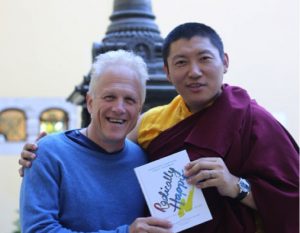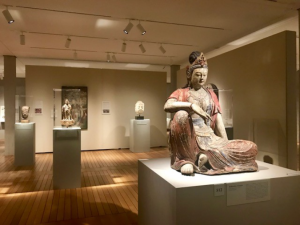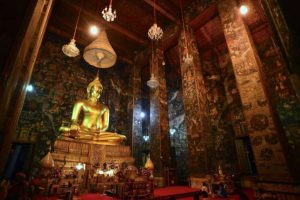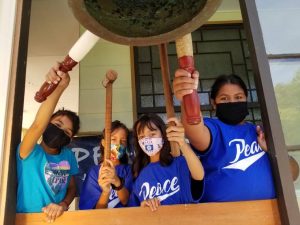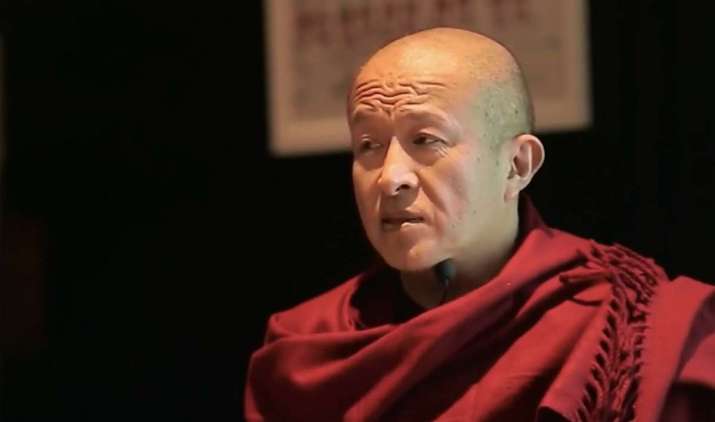
The Khyentse Foundation, founded by the renowned Bhutanese lama, filmmaker, and author Dzongsar Jamyang Khyentse Rinpoche, recently announced the official online publication of a Chinese-language translation the Sutra of the Questions of Brahma, representing the first Tibetan-to-Chinese translation of a Buddhist text completed by the Kumarajiva Project.*
“This sutra has often been cited by the great masters of Tibetan Buddhism, such as Gampopa of the Kagyu School in his Jewel Ornament of Liberation, Sheja Kunrig of the Sakya School, Longchenpa of the Nyingma school, and Gungthang Tenpe Dronme of the Gelug school,” the Khyentse Foundation said in its announcement. (Khyentse Foundation)
The Chinese translation of the Sutra of the Questions of Brahma is presented in two online versions: “A modern version and one that emulates the traditional Buddhist scriptural style. The modern version is available in both traditional and simplified Chinese. We also provide a Tibetan and Chinese aligned version. You can download your preferred version from the Kumarajiva Project website.” (Khyentse Foundation)
Launched by the Khyentse Foundation in the summer of 2019, the Kumarajiva Project (圓滿法藏-佛典漢譯計畫) is an ambitious initiative to translate canonical Buddhist texts from Tibetan into Chinese, aiming to complete the translation of the Tibetan Buddhist canon—both the Kangyur (the translated words of the Buddha) and the Tengyur (the translated commentaries on the teachings)—into Chinese within 60 years.
The foundation estimates that nine per cent of the sutras in the Kangyur (4,472 pages) and 65 per cent (10,460 pages) of the tantras do not yet have Chinese translations. In the Tengyur, it is estimated that 86 per cent (69,266 pages) of important scriptural commentaries and 36 per cent (45,540 pages) of tantric commentaries have not yet been translated into Chinese.
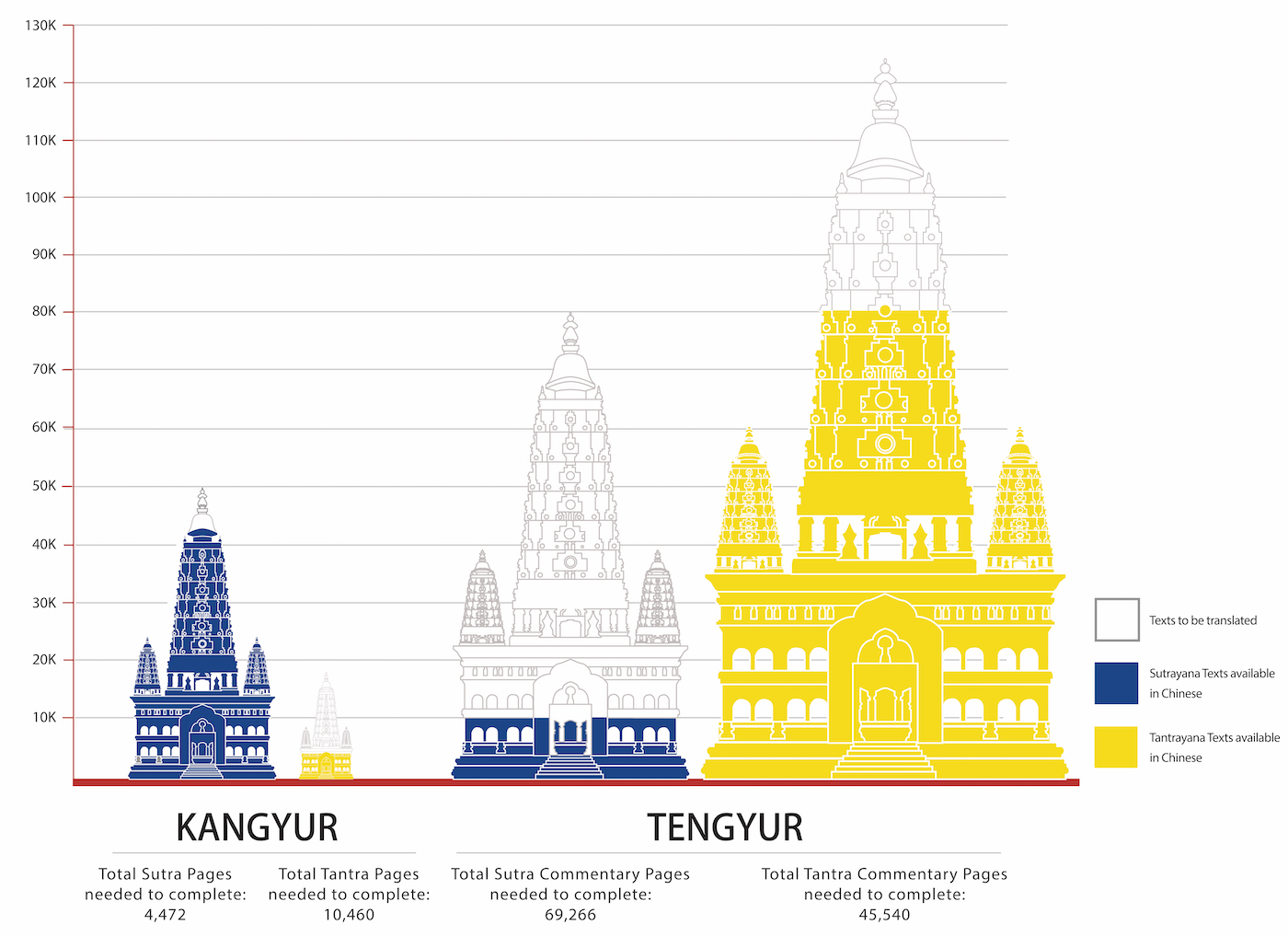
“Also, we are very pleased to share the progress of the eight translations that the Kumarajiva Project will be working on in the coming year,” the Khyentse Foundation added. (Khyentse Foundation)
The foundation said that after spending two months evaluating 15 applications from translators based in China, Germany, Taiwan, and the United States, one translator had been selected to translate one sutra and 10 others chosen to translate seven Indian commentaries from the Tibetan Buddhist canon in 2020:
1. Ārya-mahāyānaprasādaprabhāvanā-nāma-mahāyāna-sūtra (144)
2. Pañcaviṁśatisāhasrikāprajñāpār amitā (3790)
3. Āryāṣṭasāhasrikāprajñāpāramitā vyākhyānābhisamayālaṁkārāloka-nāma (verse) (3791)
4. Pañcaskandhaprakaraṇa (3866)
5. Bodhicaryāvatārapañjikā (3872)
6. Bodhyāpattideśanā-vṛtti (4005)
7. Madhyamālaṁkāropadeśa (4085)
8. Abhidharmakośaṭīkā, Chapter 1 (4092)
The Khyentse Foundation, founded in 2001, is a nonprofit organization established by Rinpoche with the aim of promoting the Buddha’s teaching and supporting all traditions of Buddhist study and practice. The foundation’s activities include major text preservation and translation projects, support for monastic colleges in Asia, a worldwide scholarship and awards program, development of Buddhist studies at major universities, training and development for Buddhist teachers, and Buddhist education for children.
The Khyentse Foundation emphasized that while more than half of the world’s estimated 500 million Buddhists are Chinese, numerous Buddhist teachings and commentaries by Indian masters have yet to be translated into the Chinese language. The foundation cited, by way of example, the Tibetan Tripitaka, which includes important commentaries explaining Buddhist sutras and tantras, such as the works of Nagarjuna and Vasubandhu. Similarly, it noted, many important texts can be found only in Pali and Sanskrit Buddhist scriptures. The Kumarajiva Project is therefore aimed at enriching the pool of Chinese-language teachings of the Buddha by eventually translating all scriptural texts from Tibetan, Sanskrit, and Pali.
Dzongsar Khyentse Rinpoche’s introduction to the Sutra of the Questions of Brahma
Born in Bhutan and now based in Himachal Pradesh, India, Dzongsar Khyentse Rinpoche gives teachings all over the world. He is the son of Thinley Norbu Rinpoche and was a close student of the Nyingma master Dilgo Khyentse Rinpoche (1910–91). He is recognized as the third incarnation of Jamyang Khyentse Wangpo (1820–92), founder of the Khyentse lineage, and the immediate incarnation of Jamyang Khyentse Chökyi Lodrö (1893–1959). In addition to the Khyentse Foundation, his projects include 84000, a non-profit global initiative to translate the words of the Buddha and make them available to all; Siddhartha’s Intent, which organizes, distributes, and archives his teachings; Lotus Outreach, which directs a wide range of projects to help refugees; and more recently The Lhomon Society, which promotes sustainable development in Bhutan through education.
Every single word spoken by the Buddha is excellent and precious. — Dzongsar Khyentse Rinpoche
* Khyentse Foundation Plans Ambitious Undertaking to Translate Tibetan Buddhist Canon into Chinese (Buddhistdoor Global)
See more
Khyentse Foundation
The Kumarajiva Project
84000: Translating the Words of the Buddha
Siddhartha’s Intent
Lotus Outreach International
The Lhomon Society
The Activities of Dzongsar Jamyang Khyentse Rinpoche






